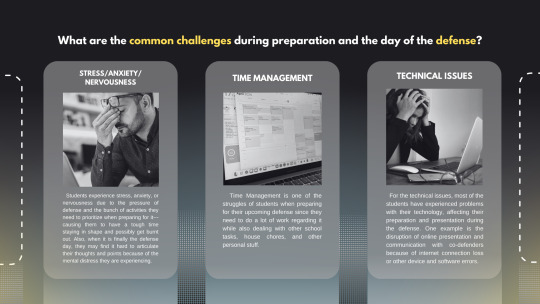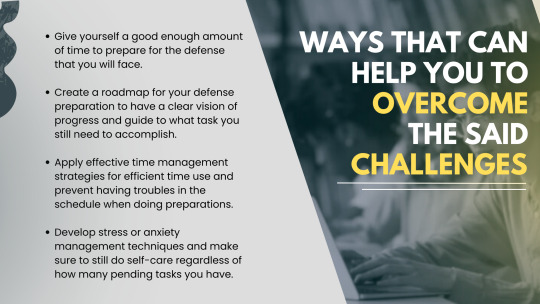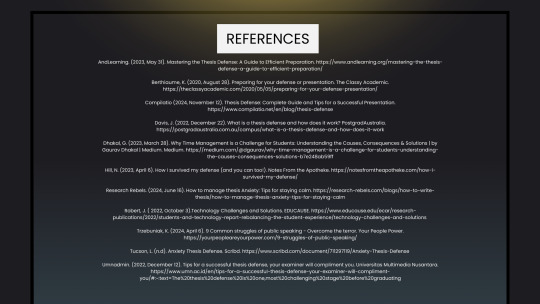#Online Examination Software
Explore tagged Tumblr posts
Text
Online Examination Platform

HireMee ProEx offers an efficient platform for all types of online examination platform. The platform is secure, scalable, and seamless. Click here to register for demo: https://hiremee.co.in/online-exam
#online examination software#online assessment platform#online exams#online examination system#best online examination software#online examination platform#online exam platform#online exam app#online exam software#online proctoring platform
0 notes
Text
Online Examination Software in India - Web based Online Examination System & Best Platform
Online Examination Software in India - Web based Online Examination System & Best Platform
“Best Online Examination Software, Online Examination System for students and teachers, Online Examination Platform with latest proctoring and assessment”
The increase in technology has developed the education sector in India with the start of online examination software. Now Traditional exams system is replaced by online tests. Today, educational institutions and organizations are increasingly adopting online examination systems to conduct exams efficiently, securely, and conveniently.
Online Examination Software provides a comprehensive platform for conducting exams and assessments remotely. This platform is designed to ensure the integrity and equality of the examination process while delivering a seamless user experience for both students and administrators.

Kasotee, the ultimate online examination platform, caters to both students and administrators with its comprehensive features.
For Students:
- Access exams anytime, anywhere with internet connection flexibility.
- Real-time feedback and results help track progress and identify improvement areas.
- User-friendly interface for a seamless examination experience.
For Administrators:
- Exam creation simplified with customizable settings for diverse subjects and formats.
- Simplified exam creation with customizable settings for various subjects and formats.
- Analytics tools for tracking student performance, reporting, and exam outcomes.
Experience the best online examination solution that enhances learning opportunities while providing efficient administrative management.
So, how does an Online Examination System work? At its core, it is a web-based platform that allows educators to create, administer, and evaluate exams online. Students can access these exams remotely from any location, as long as they have a good internet connection. This flexibility eliminates the need for physical exam centers and allows for convenience.
One of the key features of online examination software is the ability to create customizable and secure exams. Educators can easily create different types of exams, including multiple-choice, descriptive, or fill-in-the-blanks. The software ensures that the exam content is securely stored and can only be accessed by authorized individuals.
During the exam, students are provided with a user-friendly interface that allows them to navigate through the questions, mark answers for review, and submit their responses within the allotted time. The Online Examination Platform also incorporates various security measures, such as randomizing question orders and imposing time limits, to maintain the integrity of the exams.
Once the exams are completed, the online examination software automatically grades the multiple-choice questions, saving educators valuable time. For essay-based questions, the software provides tools for efficient evaluation and grading.
For subjects that require subjective assessment, such as arts or humanities, evaluators can directly access and evaluate the responses online. Online Examination Software features a user-friendly interface, customizable exam creation, secure exam administration, automated grading, and much more.
By using online examination systems, Institutions can improve exam processes for students. In addition to the exam administration and evaluation process, online examination software also offers comprehensive reporting and analysis features. Educators can generate detailed reports on individual and overall performance, identify weak areas, and track progress over time.
The process typically involves the following steps:
1. Registration and Scheduling: Students register for the examination by creating an account on the online platform. Students select exams, pay, and generate unique login credentials through the system.
2. Exam Creation and Configuration: Exam administrator creates examination by adding questions, setting time limits, rules. System supports multiple-choice, fill-in-the-blank, descriptive question types. The administrator configures exams for individual or group attempts, assigns weightage.
3. Secure Examination Delivery: Students log in using unique credentials during exams. Online examination system secures environment by disabling copy-paste, blocking access, and monitoring suspicious activities. Platforms use biometric authentication and remote proctoring for cheating prevention.
4. Real-time Monitoring and Analysis: Real-time student progress monitoring by administrators and invigilators during exams. Intervene for technical issues or cheating attempts. The system grades exams and generates reports, analyzing performance.
5. Results and Certification: Exam grades generate instant results and student feedback. Certificates can be downloaded or printed according to institution requirements.
Our platforms provide a range of features, such as customizable exam templates, robust security measures, real-time analytics, and integrations with learning management systems.
In conclusion, online examination software has emerged as a game-changer in the education sector in India. It not only simplifies the examination process but also ensures fairness, security, and convenience. With a wide array of features and platforms available, educational institutions and organizations can choose the best online examination system that meets their specific requirements and enhances the overall examination experience.
FAQ’s
What is online examination software?
The online examination software is a computer-based platform that allows users to create and administer tests over the Internet.
How does online examination software work?
Online examination software works by allowing users to create questions and answer options, schedule the test, and enable students to take the test remotely through internet-connected devices.
What are the benefits of using online examination software?
Using online examination software offers benefits such as accessibility, time efficiency, cost savings, automatic grading, and data analysis.
Can online examination software handle different types of questions?
Yes, online examination software can handle various question types including multiple choice, true/false, fill-in-the-blanks, and essay questions.
Is online examination software secure?
Yes, Kasotee online examination software implements security measures such as authentication, encryption, anti-cheating features, and data privacy protocols to ensure test integrity.
#Online Examination Software#Online Examination System#Online Examination Platform#Examination Software#Examination System#Examination Platform
0 notes
Text
Exams Made Affordable: Just ₹2 per Student! Web & Android Free!

Imagine a Online exam platform that slashes exam costs to just ₹2 per student while offering robust features and seamless accessibility. This innovative solution leverages technology to streamline the entire examination process, from question creation to result generation. At ₹2 per student, it’s a fraction of the cost of traditional systems, making it viable for schools of all sizes, including those in underserved regions.
The platform is free to access on both web and Android, ensuring that students and educators can use it without investing in expensive hardware. Whether a student is using a budget smartphone or a school computer, the platform delivers a consistent, intuitive experience. This inclusivity is critical in bridging the digital divide and ensuring that every student has access to quality assessments.
#online exam test#exam online test#exam test generator#exam paper generator#online test platform#online exam software#online examination system#online assessment platform#Online Test Maker#online proctoring software#online exam website#online exam portal#online test software
0 notes
Text
In todays fast-paced and dynamic work environment, effective management of employee attendance is critical for the smooth functioning of any organization. Traditional methods of tracking attendance, such as manual registers or punch cards, are becoming obsolete due to their inefficiency and susceptibility to errors. This is where an Attendance Management System (AMS) comes into play. Here’s why you need an attendance management system for your organization.
#software#coaching management software#coaching#school management software#coaching business#crm software#coaching institute#preschool management software#attendance management#attendance software#advance coaching#online examination system
0 notes
Text

#language#studyblr#studying#studyspo#teaching#teacher#textbooks#study motivation#student life#100 days of productivity#online homework help#online diary#online exam help#online exam software#exams#civil services examination#chuunin exams#exam stress#exam season#education
0 notes
Text

HireMee ProEx is a online exam software that ensure 100% integrity of the exams. visit: https://hiremee.co.in/online-exam
#online assessment#best exam software#online examination#examination platform#online exams#online examinations#online exam#online proctored exams
0 notes
Text
IBR Infotech is a leading online exam software development company that helps you conduct, manage & assess online tests and exams. Contact us today.
#online exam software development company#online examination software development#online exam software
0 notes
Text

Hatsune Miku - The False Idol and Her Fandom as a Body Without Organs
Hatsune Miku is a Vocal synthesiser, a commercially produced software that comes paired with an illustrated girl as the “performer.” People use this software to create digital performances, borrowing Hatsune Miku’s image and posting them online, where they often evolve as they are circulated. Her image is free to share, adapt and create with - the surrounding “Vocaloid fandom” uses this image and voice to explore and navigate complex and heavy topics, often extremely personal, such as grief, sexuality, depression and relationships. While there are some works in this area, they are lacking in depth and evidence, which is the gap I aim to fill. This study aims to examine the appeal of using Hatsune Miku as a vehicle for these complex representations, looking further at the surrounding fandom. Using semi-structured interviews on participants from fandom sites such as Tumblr, gaining a breadth of qualitative information on their connection to Miku, I am to investigate my hypothesis that the connections between fandom and figure is comparable to that of a Body Without Organs, which in this case, occurs with ease, due to Miku’s freely accessible image, prosumption encouraging background and narrative lacking nature.
Back in April 2024, I was interviewed for an academic paper on Hatsune Miku and the VOCALOID fandom. The author finally shared the finished work with me at the very end of 2024, and I've created a site where you can read the paper in full!
605 notes
·
View notes
Text
Not My Type: Automating Sexual Racism in Online Dating
youtube
A new book by Dr. Apryl Williams exposes how race-based discrimination is a fundamental part of the most popular and influential dating algorithms. “Not My Type: Automating Sexual Racism in Online Dating” (Stanford University Press) provides a socio-technical examination of the AI systems powering Tinder, Bumble, Hinge, and other apps. Williams uses deep analysis of companies’ patents and technology to reveal how racism and romance are now inextricably linked through computer code. She also interviews more than 100 app users, exploring why online dating as a person of color is so fraught.
Dr. Williams explores the dating platforms' algorithms, their lack of transparency, the legal and ethical discourse in the context of these companies' community guidelines, and accounts from individual users in order to argue that sexual racism is a central feature of today's online dating culture. She discusses this reality in the context of facial recognition and sorting software as well as user experiences, drawing parallels to the long history of eugenics and banned interracial partnerships. Ultimately, Williams calls for, both a reconceptualization of the technology and policies that govern dating agencies, and also a reexamination of sociocultural beliefs about attraction, beauty, and desirability.
This event features Dr. Williams in conversation with the Cyberlaw Clinic’s Kendra Albert, a legal scholar of computing, gender, and society.
34 notes
·
View notes
Text
Anne Kustritz’s Identity, Community, and Sexuality in Slash Fan Fiction
Anne Kustritz’s new book, Identity, Community, and Sexuality in Slash Fan Fiction: Pocket Publics has just been released by Routledge (2024). You might know Kustritz, a scholar of fan cultures and transmedia storytelling, from her early essay “Slashing the Romance Narrative,” in the Journal of American Culture (2003) or maybe from some of her more recent work on transmedia and serial storytelling. But this new book is an exciting addition to the fan studies canon, and Fanhackers readers might be particularly interested, because the book “explores slash fan fiction communities during the pivotal years of the late 1990s and the early 2000s as the practice transitioned from print to digital circulation,”--which is the era that a lot of the fans involved in the creation of the OTW came from. As I noted in my book blurb, “While there has been an explosion of fan studies scholarship in the last two decades, we haven't had an ethnography of fan fiction communities since the early 1990s. Kustritz's Pocket Publics rectifies that, documenting the generation of slash fans who built much of fandom's infrastructure and many of its community spaces, both on and off the internet. This generation has had an outsized impact on contemporary fan cultures, and Kustritz shows how these fans created an alternative and subcultural public sphere: a world of their own.”
Kustritz doesn’t just analyze and contextualize fandom, she also describes her own experiences as a participant-observer, and these might resonate with a lot of fans (especially Fanhackers-reading fans!) Early on in the book, Kustritz describes her how her own early interest in fandom blurred between the personal and the academic:
Because I began studying slash only a year after discovering fandom on-line, my interest has always been an intricate tangle of pleasure in the texts themselves, connection to brilliantly creative women, and fascination with intersections between fan activities and academic theory. I may now disclaim my academic identity as an interdisciplinary scholar with concentrations in media anthropology and cultural studies and begin to pinpoint my fan identity as a bifictional multifandom media fan; however, I only gradually became aware of and personally invested in these categories as I grew into them. This section defines the scope of the online observation period that preceded the active interview phase of this research. In so doing it also examines the messy interconnections between my academic and fannish interests and identities. Trying to pick apart what portion of my choices derived from fannish pleasure and which from academic interest helps to identify the basic internal tensions and categories that slash fan fiction communities relied upon to define themselves, the pressures exerted upon these systems by the digital migration, and complications in academic translation of fannish social structures.
Later in the book, Kustritz discusses how fans have organized and advocated for themselves as a public; in particular, there’s a fascinating chapter about the ways in which fandom has adopted and transformed the figure of the pirate to forge new ways of thinking about copyright and authorship. If the OTW was formed to argue that making fanworks is a legitimate activity, the figure of the pirate signifies a protest against the law and a refusal to be shamed by it:
[F]ans also use the figure of the pirate to make arguments that validate some fan activities and consign others to illegitimacy. At the urging of several friends involved with slash, I attended my first non-slash focused science fiction and fantasy convention in the summer of 2004. The program schedule announced a Sunday morning panel discussion provocatively titled “Avast, Matey: The Ethics of Pirating Movies, Music, and Software” with the subheading “Computers today can distribute [more] intellectual property than ever before--not always legally. Is it ever okay to copy, download, and/or distribute media? Sorry, ladies, none of us will be dressed as Captain Jack Sparrow.” The panel’s subheading, which obliquely warned away both lusty women and pirates, led a small contingent of slash fans to shake off Saturday night’s convention revelries unreasonably early and implement a plan of their own for Sunday’s panel. As many fan conventions encourage costumes, known as “cosplay,” one of my friends and research participants happened to have been dressed as Captain Jack Sparrow of Pirates of the Caribbean that weekend, so I entered the piracy panel with Captain Jack and a motley crew of slashers, some of them intent upon commandeering the discussion.
The clash that followed exemplifies a structural fault line between various types of fan communities regarding their shared norms and beliefs about copyright law, the relationship between fans and producers, and appropriate fan behavior.
If you want to find out how this clash played out–well, you’ll just have to read the book. 😀
–Francesca Coppa, Fanhackers volunteer
#fanhackers#author:francescacoppa#anne kustritz#early digital fandom#slash#piracy#fannish culture clashes
127 notes
·
View notes
Text
Online Examination Website

How can you conduct online examination website for your students from a distance while still ensuring it is a cheat proof environment? visit: https://hiremee.co.in/online-exam
#online examination software#online assessment platform#online exams#online examination system#best online examination software#online examination platform#online exam platform#online exam app#online exam software#online proctoring platform
0 notes
Note
Best way to get through Greek/Latin texts?
I had a whole little system I set up that worked for me. It only really works if you have a good grasp of the language—I wouldn’t recommend it for beginners—but it’s a very effective way of getting through, understanding, and remembering your texts.
Go onto The Bridge and download a frequency vocab list for the text. I found it best to add in an ‘exclude’ function for a general frequency list like Diederich or the OCR AS defined list, so that the resulting vocab list was more precise. Once you’ve downloaded your list, make sure that you know the vocabulary on it well before you move onto the next step. Anki or Quizlet, or paper flashcards, are best for this.
Find a good and relatively literal English translation of the text online—I like A. S. Kline’s Poetry in Translation website for any verse, and Wikisource is quite good for both prose and verse. (Of course, if you have to translate your texts into a different language, then find a translation in that language and not in English!) Take this text and put it into a plain Word document or PDF. Make sure that your phone/computer has some kind of text-to-speech software—almost all do, just look up text-to-speech in the settings.
Find an interlinear version of your text, if you can. This step is optional, but definitely advisable especially for poetry and more syntactically complex works like those of Cicero. Versions of the text where the word order is rearranged to make more sense in English (e.g. J. Coderch’s Vergil’s Aeneid Rephrased in Prose) also work perfectly well for this. If you can’t find an interlinear/rearranged version, you can skip this step.
Print out/photocopy your interlinear text, in a font/size/colour combination that’s easy for you to read, and have the paper and a pen in front of you.
Now, you’re going to read the text by eye, in the original language, whilst simultaneously listening to the text-to-speech software reading it in slow English. This works especially well with interlinear texts because you don’t need to chase about the page looking for the verb and end up distracted. Don’t stop the audio until it’s time for a break, and try not to read the interlinear translation beneath—simply underline any word that is unfamiliar to you, and move on.
Any underlined words can now go into a separate vocabulary list/flashcard set as words that you found personally difficult, and revised frequently according to the Leitner System.
Once you have read through the whole of your text using this listening method—it shouldn’t take all that long if you’re diligent and read a good amount each day—then you can take your prescribed edition of the text (not the interlinear version) and begin preparing it in the usual way: translating line by line, paying attention to the syntax and vocabulary. Again, if any words are still unfamiliar to you, then add them to your list. Preparing your texts should now be much quicker than it would have been had you not read everything according to the listening method beforehand, and you should be able to get the gist of the content and context much more easily.
When you have a proper translation of your text, then you can go through with multiple commentaries and annotate it like I described in this post.
If you’re going to be examined on translation, I recommend putting your own translation info flashcards, one verse/section per card. Test yourself frequently by giving yourself random passages to translate, closed-book. Listening to the text being read in the original language (if you can find an audio version with good and clear pronunciation) is also a really good way of testing yourself on comprehension, especially if you don’t have the words in front of you and simply have to understand by ear.
8 notes
·
View notes
Text
Abl Abov Absenc Absolut Abus Accurat Achiev Acquir Activ Acut Adequat Advanc Advers Advic Advis Advocat Agre Aliv Allianc Alon Announc Anyon Anywher Appl Argu Aris Arriv Articl Asid Assum Attitud Audienc Avenu Averag Awar Balanc Bas Battl Becam Becaus Becom Befor Believ Besid Blam Blu Bon Bottl Bridg Brok Cabl Cam Capabl Captur Car Cas Castl Caus Centr Chanc Chang Charg Charli Choic Choos Chos Circl Climat Clos Closur Cod Coffe Collaps Colleg Com Combin Commerc Compar Compet Complet Compris Conclud Concret Continu Convinc Cor Coupl Cours Coverag Creat Creativ Crim Cultur Cycl Damag Danc Dat Databas Deadlin Debat Decad Decid Declin Decreas Defenc Defin Degre Describ Desir Despit Devic Dialogu Diseas Disput Distanc Divers Don Doubl Driv Drov Duk Eas Edg Eligibl Els Emerg Empir Employe Enabl Engag Engin Enhanc Ensur Entir Entranc Envelop Escap Estat Estimat Evaluat Everyon Evidenc Examin Exampl Exchang Exercis Expens Explor Exposur Extrem
Fac Failur Fals Featur Femal Figur Fil Fin Financ Fir Fiv Flexibl Forc Fortun Fram Fre Futur Gam Gat Gav Gen Generat Genuin Giv Gon Grac Grad Graduat Guid Guidanc Handl Hardwar Hav Henc Her Heritag Hir Hol Hom Hop Hors Hous Hug Ignor Imag Imagin Improv Includ Incom Increas Indicat Insid Instanc Intens Intimat Involv Issu Jan Judg Justic Lak Lan Languag Larg Lat Leagu Leas Leav Leisur Leverag Licens Lif Lifetim Lik Likewis Lin Littl Liv Los Lov Machin Mad Magazin Mak Mal Manag Marin Marriag Massiv Matur Maximiz Mayb Meantim Measur Medicin Mer Messag Middl Mik Mil Min Minut Mistak Mixtur Mobil Mod Moderat Modul Mor Mortgag Mov Movi Multipl Muscl Nam Nativ Natur Negativ Nic Nin Nois Non Not Notabl Notic Nurs Offens Offic Offshor Onc Onlin Operat Opposit Orang Organiz Outcom Outsid Overcom Pac Packag Pag Palac Passag Payabl Peac Peopl Persuad Phas Phon Phras Pictur Piec Pipelin Plac Plan Plat Pleas Pleasur Polic Portabl Positiv Possibl Practic Precis Prepar Presenc Preserv Pressur Pric Prid Prim Princ Privat Priz Probabl Produc Profil Promis Promot Prov Provid Provinc Pur Purchas Purpos Pursu Quit Rac Rais Rang Rar Rat Realiz Receiv Reduc Regim Relat Relativ Releas Reliabl Relianc Remot Remov Replac Requir Rescu Reserv Resolv Resourc Respons Restor Revenu Revers Rid Ris Rol Ros Rout Routin Rul Saf Sal Sam Sampl Sav Scal Scen Schedul Schem Scienc Scop Scor Secur Senat Sens Sensibl Sentenc Separat Sequenc Serv Servic Settl Sever Shap Shar Shortag Sid Silenc Simpl Sinc Singl Sit Siz Smil Smok Softwar Sol Solv Som Someon Sourc Spac Spok Squar Stabl Stag Stak Stat Ston Stor Storag Strang Strik Struggl Styl Suit Suitabl Suppos Suprem Sur Surfac Surpris Surviv Syndrom Tabl Tackl Tak Tangibl Tap Tast Terribl Theatr Them Ther Thes Thos Thre Tim Tissu Titl Ton Trad Tre Troubl Tru Twelv Twic Typ Ultimat Unabl Uniqu Univers Unlik Updat Upgrad Usag Valu Valuabl Variabl Vehicl Ventur Vic Villag Violenc Visibl Voic Volum Vot Wag Wak Wast Wav Websit Welcom Welfar Wer Wher Whil Whit Whol Whos Wid Wif Wildlif Win Wir Wors Writ Wrot Zon
5 notes
·
View notes
Text
Why Choose Our Online Exam Software? Quality Testing for ₹6999/Year
In the rapidly evolving landscape of education and professional training, the demand for efficient, secure, and affordable assessment tools is at an all-time high. Our online exam software, priced at just ₹6999 per year, stands out as a premier choice for institutions and businesses seeking quality testing solutions. Designed to simplify exam management while delivering robust features, this software offers unmatched value, making it the ideal choice for schools, coaching centers, universities, and corporate training programs. Here’s why our online exam software should be your go-to solution for assessments.
Unparalleled Affordability Without Compromise
At ₹6999 per year, our online exam software provides enterprise-grade functionality at a price that fits even the tightest budgets. Unlike other platforms that charge exorbitant fees, our solution delivers premium features—such as automated grading, customizable question banks, and real-time analytics—without breaking the bank. This affordability empowers small institutions, startups, and growing organizations to access high-quality testing tools, ensuring that cost is never a barrier to delivering exceptional assessments.

Comprehensive Features for Seamless Exams
Our software is packed with features that streamline every aspect of the exam process. Administrators can create diverse question types, including multiple-choice, essays, and coding challenges, tailored to specific needs. The platform supports bulk question uploads, automated scheduling, and instant result generation, reducing administrative workload. Integration with learning management systems (LMS) ensures smooth workflows, while a user-friendly interface makes exam setup a breeze. For just ₹6999 annually, you get a comprehensive tool that enhances efficiency and productivity.
Robust Security for Trustworthy Assessments
Maintaining exam integrity is non-negotiable, and our online exam software excels in this area. Advanced security features, including AI-powered proctoring, secure browser lockdowns, and randomized question pools, prevent cheating and ensure fair testing. Real-time monitoring allows administrators to track candidate behavior, while time-bound exams minimize opportunities for malpractice. Priced at ₹6999/year, our software delivers these cutting-edge security measures, giving institutions confidence in the credibility of their assessments.
Flexibility for Diverse Needs
Whether you’re conducting academic exams, competitive test prep, or employee certifications, our software adapts to a wide range of use cases. Its scalable, cloud-based architecture supports thousands of simultaneous test-takers, making it suitable for institutions of all sizes. The platform’s mobile-responsive design ensures candidates can take exams from any device, enhancing accessibility. Customization options, such as branded exam interfaces, allow organizations to align the software with their identity. At ₹6999 per year, this flexibility makes our software a versatile solution for any assessment scenario.
Empowering Educators and Learners
Our online exam software goes beyond logistics to improve the overall assessment experience. Educators gain access to detailed performance analytics, enabling data-driven insights into student progress and areas for improvement. Candidates benefit from instant feedback and a seamless testing interface, fostering engagement and reducing exam-related stress. The affordability of the software ensures that institutions can invest in a tool that enhances learning outcomes without straining resources, creating value for all stakeholders.
Hassle-Free Implementation and Support
Adopting new technology can be daunting, but our software is designed for easy implementation. With an intuitive dashboard and minimal learning curve, administrators can start using the platform right away. Our dedicated support team is available to assist with setup, troubleshooting, and optimization, ensuring a smooth experience. For just ₹6999/year, you get not only a powerful tool but also the support needed to maximize its potential, making it a hassle-free choice for busy institutions.
A Strategic Investment in Quality Testing
Choosing our online exam software at ₹6999 per year is a strategic decision to future-proof your assessment processes. As digital education and training continue to grow, having a reliable, affordable, and feature-rich testing platform is essential. Our software delivers quality testing that meets modern standards, positioning your organization as a leader in innovative assessments. Invest in our solution today and experience the difference of a tool designed with your success in mind.
In conclusion, our online exam software at ₹6999/year offers unmatched value, security, and flexibility for quality testing. With its comprehensive features, ease of use, and affordability, it’s the perfect choice for institutions aiming to elevate their assessments. Choose our software and transform the way you conduct exams, delivering exceptional results with every test.
#online exam test#exam online test#exam test generator#exam paper generator#online test platform#online exam software#online examination system#online assessment platform#Online Test Maker#online proctoring software#online exam website#online exam portal#online test software
0 notes
Text
The online HSK(K) 4 exam
Today I wrote my HSK4 and HSKK 4 exams, which as it turns out are 2 separate exams with 2 separate certificates and doing badly on one of them doesn't affect the other ones score as I'm told.
Since I was left feeling absolutely out of my depth in the beginning, I decided to write about my experience with doing the HSK(K) 4 exams online!
There were a few options for the exam formats. Do note that these formats may not be available everywhere depending on the region and the availability of the exam centres.
Paper-based: Your usual end-of-year or midterm exam format. Pen and paper, nothing particulary out of the ordinary. This type has its own pros and cons, as you have to know your characters really well, especially for the more advanced levels.
Online onsite. You go to a specific exam location, which is usually at a university or a language learning centre, where you sit at a computer and do the timed exam using special software.
Online at home. As far as I know its the same as option 2, expect you do it at home.
Nothing too surprising? Wait until you get to the online HSKK part.
The HSKK
I did the online onsite format, but I naively assumed that the exam would be with an actual in-person examiner.
Little did I know that it would also be online, and that I would have to speak my answers into the computers microphone. It wasn't too bad at the beginning, but then when we had to prepare for the individual answers it was chaos.
And not the good kind.
Trying to say my answer into the microphone in a room full of other people also trying to do the same thing, with my microphone also picking up other people's answers and me being totally thrown off and struggling to gather my thoughts led me to this conclusion within the first 5 minutes of this exam: I am so not passing this.
It is what it is, and once I get my results back (in 60-90 days apparently???) I can try to figure out what to do next. In the mean time I'll be focusing on my chinese studies and see about picking up another skill while I'm here.
If anyone also did their HSK(K) exams recently, what was it like for you?
#chinese langblr#mandarin langblr#mandarin#chinese#hsk#hskk#learn chinese#china#life in china#study in china#china college life#beijing#travel blog#study motivation#student#study blog#aesthetic#studyblr#college#college life#student life#slavic roots western mind#exams#chinese exam
36 notes
·
View notes
Text










The Shield to Overcome the Thrilling Challenges of Defense
BY: GROUP 1 | HUMSS 12-1
Have you ever had a difficult time before and during an academic defense? Worry not, because you are not the only one! Being a student, means we come into a phase in our lives where at least once we ought to face a big academic obstacle—a defense. To overcome that, one must stand firm, yield a strong shield, and push through amidst challenges!
In this blog, you will see several ways or tips that can help you achieve successful preparation and execution of defense, overcoming the thrilling challenges brought by it.
But before all of that, let us first understand the academic or thesis defense and the challenges related to it.
What is Defense?
An academic or thesis defense is a presentation of your work and field as a whole in front of the panelists who will examine your mastery and knowledge. Students see it as challenging because they are worried about the problems they might encounter before and on the day of defense, how complex the questions asked by the panelists are, and how hard they can be on the students or defenders.
What are the common challenges during preparation and the day of the defense?
Stress/Anxiety/Nervousness:
Students experience stress, anxiety, or nervousness due to the pressure of defense and the bunch of activities they need to prioritize when preparing for it---causing them to have a tough time staying in shape and possibly get burnt out. Also, when it is finally the defense day, they may find it hard to articulate their thoughts and points because of the mental distress they are experiencing.
Time Management:
Time Management is one of the struggles of students when preparing for their upcoming defense since they need to do a lot of work regarding it while also dealing with other school tasks, house chores, and other personal stuff.
Technical Issues:
For the technical issues, most of the students have experienced problems with their technology, affecting their preparation and presentation during the defense. One example is the disruption of online presentation and communication with co-defenders because of internet connection loss or other device and software errors.
Ways that can help you to overcome the said struggles/challenges:
- Give yourself a good enough amount of time to prepare for the defense that you will face.
- Create a roadmap for your defense preparation to have a clear vision of progress and guide to what task you still need to accomplish.
- Apply effective time management strategies for efficient time use and prevent having troubles in the schedule when doing preparations.
- Develop stress or anxiety management techniques and make sure to still do self-care regardless of how many pending tasks you have.
- Ask academic advisers for guidance and engage in academic defense support or practice groups, online or in-person sessions.
- Do a thorough study of your work and presentation content until you master it.
- Learn the possible questions that will be asked by the panelists and practice yourself in answering those.
- Improve your speaking and delivering skills by doing mock presentations on your own or in front of people you can practice with.
- Before the day of your presentation, ensure that your internet connection, devices, software, files, and slides are in great condition or accessible.
- Be confident and trust your capabilities, especially when you are well aware that you did your best to prepare.
Now, herewith is the shared real-life experience of a student who went through defense challenges:
“When I was in the eleventh grade, we had a title defense for our research. I was the group leader, despite not having enough knowledge in that field. Of course, with that, I was experiencing a lot of pressure since my group mates were counting on me. They are also struggling to remember and understand the content of our slide presentation. Before the day of the defense, I encouraged them to practice. I provided them with some tips and tricks to make it easier for them to understand our research together. On the day of the defense, I was scared, but I pulled a confident attitude so my group would be encouraged. After an in-depth study and practice, we managed to defend our title and get the approval of the panelists. We were so happy because our efforts did not go to waste.”
-Jedi Ferando, a student from PHINMA-Saint Jude College Manila, Philippines
Conclusion & Takeaways
The process of going through an academic defense requires a lot of effort, efficient preparation, stress management, and having faith in your capabilities. Without those, you will most likely get knocked down by the challenges you might encounter along the way of academic defense.
As a quote to remember by Thomas Edison, “The successful person makes a habit of doing what the failing person doesn’t like to do.” This tells us to make an effort and do the ways that will help us in succeeding in things if we do not want to end up like the failure person who failed to do those.
3 notes
·
View notes